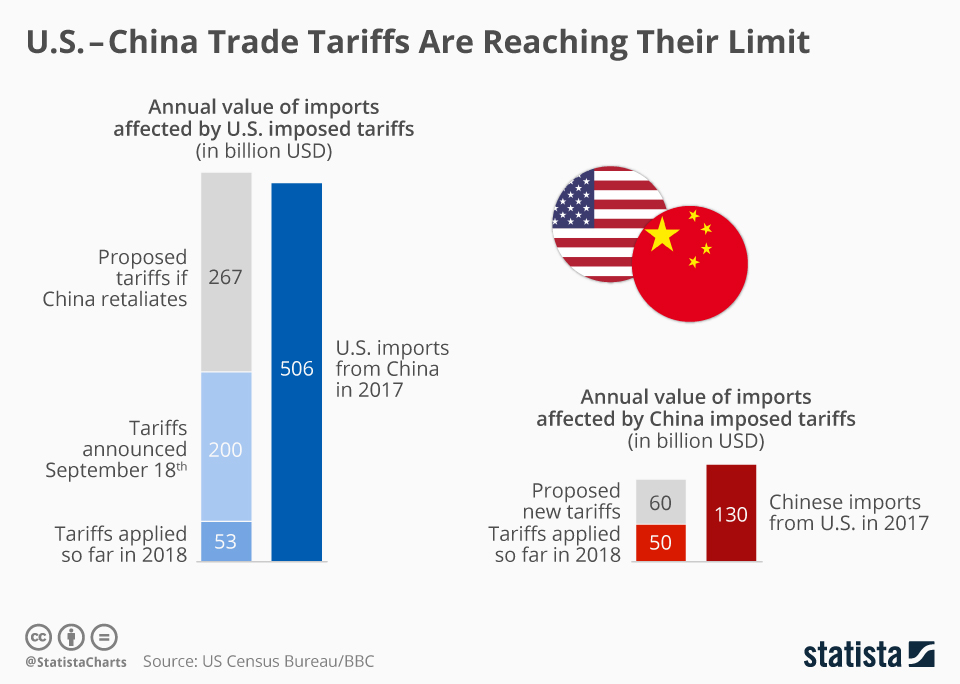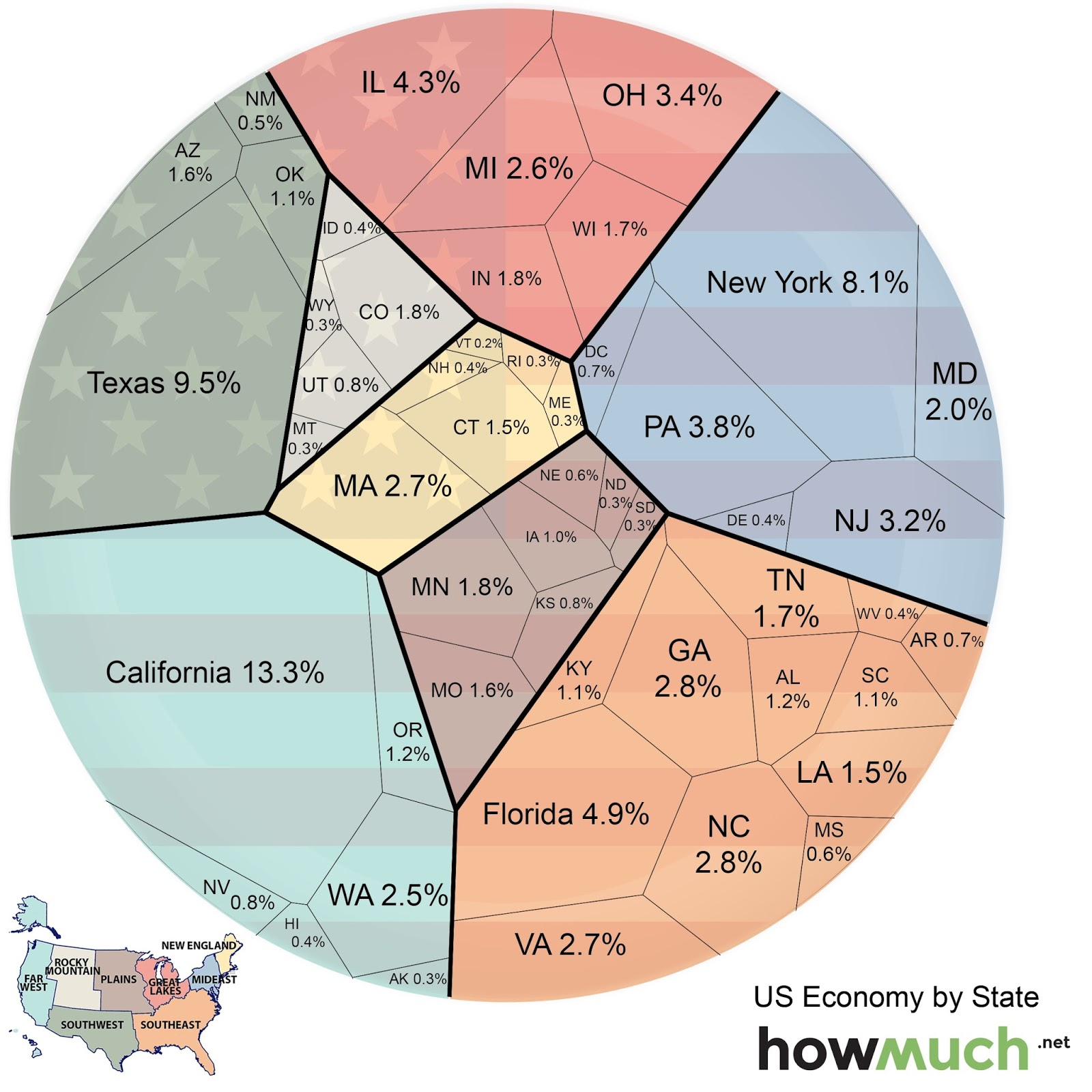China tariffs have emerged as a pivotal issue in the ongoing U.S.-China trade war, with the potential to significantly impact both economies. These tariffs, proposed by the U.S. government, aim to impose hefty levies on Chinese imports, which could lead to higher prices for American consumers and supply chain disruptions. As the Biden administration re-evaluates its foreign relations strategies, the implications of these tariffs on the U.S. economy are drawing considerable scrutiny. Economists warn that while these measures may harm the Beijing economy, they could inadvertently strengthen alliances between China and other nations, further complicating international trade dynamics. Understanding the complexities of China tariffs is essential as they continue to shape the global marketplace.
Imposing trade barriers on goods coming from China has become a focal point in modern economic discussions, particularly due to recent developments in international commerce. These import duties not only challenge the existing trade landscape but also threaten to upend supply networks critical to various industries. As the Biden administration navigates the repercussions of these tariffs, the ramifications for the U.S. economy and its foreign trade relations will likely come under intense examination. Economists are increasingly concerned that such policies could lead to reactive shifts in global alliances, particularly involving key economic partners. The broader implications of these trade measures extend beyond simple economics, influencing geopolitical stability and global market dynamics.
The Impact of China Tariffs on the U.S. Economy
The impending imposition of China tariffs by the U.S. could lead to significant repercussions for the domestic economy. As tariffs increase, costs for importing goods will likely rise, making products more expensive for American consumers. This price inflation can adversely affect consumer behavior, leading to decreased spending in other areas of the economy. Consequently, this could stifle economic growth and trigger a cycle of disruption within the U.S. markets, undermining the stability the economy needs to flourish.
Moreover, economists warn that these tariffs could further complicate existing supply chain disruptions, exacerbated by previous trade tensions and global events. As manufacturers grapple with increased material costs and shifting supply chains, the risk of labor shortages and delayed production could be heightened. This cascading effect may not only impact industries reliant on Chinese imports, but it could also create reverberating challenges across the broader U.S. economy, affecting everything from retail to technology sectors.
Potential Consequences for U.S.-China Relations
The proposed tariffs represent more than just economic policy shifts; they symbolize a deepening rift in U.S.-China relations. With a trade war potentially reigniting, Beijing is likely to view these actions as aggressive moves, further complicating diplomatic ties that have already been strained. Economists suggest that while the tariffs are intended to protect American interests, they may provoke retaliatory actions from China, thereby escalating tensions and potentially ushering in a new era of hostility in foreign relations.
Additionally, the ramifications of these tariffs could lead to a rethinking of alliances for both nations. If China’s economy falters, Beijing may seek to solidify relationships with other global players, including traditional U.S. allies like the European Union and Canada. This shift could create unexpected coalitions, undermining U.S. geopolitical standing while positioning China as a more cooperative partner among its allies, ultimately reshaping global trade dynamics in ways that could disadvantage the U.S.
Supply Chain Disruptions and Their Implications
The potential for supply chain disruptions is a pressing concern as the U.S. considers implementing tariffs on Chinese imports. Many American companies rely heavily on complex supply chains that involve sourcing components from various countries, with China playing a crucial role. If tariffs are enforced, businesses may face escalated costs and delays, undermining operations and leading to decreased productivity. This could pose significant risks to sectors desperately needing a steady supply of goods, ultimately impacting consumers with longer wait times and higher prices.
In light of these supply chain vulnerabilities, companies must adapt to mitigate the fallout from potential tariffs. Some might look to diversify their suppliers or shift production to countries like Vietnam or India, an endeavor that requires time and investment. However, these alternatives often lack the developed infrastructure and technological capability that Chinese manufacturers offer, complicating the transition. As various industries scramble to navigate these changes, it becomes increasingly clear that tariffs could lead to systemic inefficiencies, hindering the overall capacity for growth and innovation in the U.S. economy.
China’s Economic Strategies Amid Tariff Threats
In anticipation of the possible trade war, China has been strategically reevaluating its economic policies. Authorities are aware of the potential fallout from U.S. tariffs and are likely developing contingency plans to bolster domestic demand and mitigate dependence on exports. This adjustment could involve enhancing the Belt and Road Initiative, promoting regional partnerships, and fostering new markets in emerging economies to offset potential losses in the U.S. market.
These changes are not merely defensive; they signify a broader shift in how China views its role in global trade. By diversifying its economic engagements, Beijing hopes to craft a more resilient economy capable of withstanding external pressures. This proactive approach may enable China to capitalize on new opportunities, positioning itself as an indispensable player in international markets even amid tumultuous U.S.-China relations.
The Role of Foreign Relations in Economic Stability
Foreign relations play a crucial role in economic stability, particularly in light of tariff strategies. The precarious balance between maintaining strong international partnerships and protecting domestic industries becomes increasingly complex when tariffs are in play. If the U.S. moves to isolate China through heightened tariffs, it may inadvertently push China closer to other nations, potentially rallying allies against American economic policies.
This shift could render traditional U.S. alliances less effective, as countries might pursue economic collaborations with Beijing, prioritizing mutual benefits over long-standing partnerships with the U.S. The possibility of a united front among countries affected by U.S. tariffs could have significant repercussions, leading to further economic isolation for America and impacting its long-term foreign relations.
Challenges of High Tariffs and Their Domestic Impact
Imposing high tariffs, such as the projected 60% on Chinese goods, presents numerous challenges on the domestic front. One significant concern is the ripple effect on various sectors of the U.S. economy. Industries that depended heavily on affordable imports from China may face increased costs, prompting businesses to either pass these costs onto consumers or absorb them, which could massively impact profit margins.
Moreover, as domestic prices rise, consumer purchasing power may decline, resulting in decreased consumption. This scenario could lead to broader economic stagnation, as consumer spending is a key driver of economic growth. Therefore, the implementation of steep tariffs risks undermining the very economic stability it aims to protect, creating a paradox that could leave American citizens grappling with higher costs and a declining standard of living.
Beijing’s Long-Term Economic Vision
Amid the looming threat of U.S. tariffs, Beijing is likely considering a long-term economic vision that prioritizes self-sufficiency and international resilience. This involves shifting focus from a reliance on exports to bolstering domestic consumption as a means to sustain economic momentum. However, this transition is fraught with difficulties, especially given the existing structural issues within China’s economy, such as surplus savings and weak domestic demand.
By promoting initiatives that encourage domestic growth, such as technological innovation and fostering entrepreneurship, the Chinese government aims to mitigate the adverse effects of U.S. tariffs. However, this vision requires careful planning and execution, as it must effectively balance the needs of its export-driven economy with the ambitions of instilling a consumer-oriented market. Ultimately, how China navigates this shift in strategy will determine its resilience in the face of external economic pressures and its ability to maintain robust foreign trade relations.
Understanding the Broader Trade Landscape
The broader trade landscape must be taken into account when considering the implications of U.S.-China tariffs. As countries become more interconnected through trade agreements, tariffs can serve as disruptive barriers that not only affect bilateral relations but also global trade patterns. While the immediate focus may be on the U.S.-China dynamic, the ripple effects can touch numerous countries that rely on these economies for trade, investment, and economic stability.
As nations including European countries, Japan, and Australia assess their positions, they may find themselves recalibrating trade agreements and partnerships to counterbalance the potential fallout from U.S. tariffs. This dynamic offers both challenges and opportunities for countries to redefine their roles in the global trade environment, emphasizing the need for a comprehensive approach to international economic relations that transcends bilateral tariffs.
Prospective Innovations in Response to Tariffs
As American businesses brace for the impact of potential tariffs, many are contemplating innovative solutions to navigate the economic landscape. Companies may invest in technologies that enhance efficiency, reduce reliance on imported materials, or explore alternative sourcing routes. Such adaptations not only aim to soften the blow of tariffs but also highlight a broader trend toward innovation and resilience in the face of adversity.
This evidence of innovation reflects the businesses’ recognition of the need to be agile amidst changing policies and global economic shifts. By fostering a culture of adaptability, companies can develop new products and services that align with evolving consumer preferences while ensuring they remain competitive in both domestic and international markets. Such strategic pivots could ultimately serve as a catalyst for longer-term growth amidst turbulent trade relations.
Frequently Asked Questions
How will new China tariffs impact the U.S. economy?
New China tariffs, particularly if they reach 60%, could significantly impact the U.S. economy by raising prices for consumers on a wide range of goods. This is because many products, such as electronics and apparel, are heavily reliant on Chinese manufacturing. Increased tariffs may lead to supply chain disruptions and labor shortages as companies explore alternatives for sourcing.
What are the potential foreign relations consequences of imposing tariffs on China?
Imposing tariffs on China could strain U.S. foreign relations, especially with allies like the European Union and Japan. As tariffs increase on Chinese goods, these nations might seek closer economic ties with China, which could weaken U.S. influence in international trade discussions.
Can the U.S. supply chain adapt to high tariffs on Chinese imports?
While some sectors may attempt to adapt to high tariffs on Chinese imports by shifting sourcing to countries like India and Vietnam, the transition will be complex and time-consuming. This complexity is due to the intricate supply chains that have evolved over decades, where many components are sourced from various countries.
What is the impact of a trade war on Beijing’s economy?
A trade war and subsequent increase in China tariffs could exacerbate the economic challenges already facing Beijing, such as a slow housing market and declining consumer demand. Conclusively, high tariffs could further diminish China’s export growth, impacting its overall economic stability.
How might consumers in the U.S. react to increased prices due to China tariffs?
Increased prices stemming from China tariffs would likely lead to consumer dissatisfaction and adjustment in spending habits. American consumers might prioritize necessities over non-essential goods, putting pressure on businesses that rely on Chinese imports.
Are there alternative markets that can replace Chinese imports to the U.S.?
While countries like India and Vietnam are being considered to fill the gap of Chinese imports, they may not have the immediate capacity or technical expertise to replace China effectively. Establishing new supply chains takes time and significant investment.
What strategic shifts could China consider in response to U.S. tariffs?
In response to U.S. tariffs, China may pursue a dual strategy of stimulating domestic consumption while also seeking to deepen partnerships with other advanced economies like the EU and Japan. This could diversify its trade relationships and mitigate the negative impacts of U.S. tariffs.
How do tariffs contribute to supply chain disruptions?
Tariffs can contribute to supply chain disruptions by increasing the costs and complexities of sourcing materials and products from China, forcing companies to reassess and potentially reorganize their supply chains, which can lead to delays and inefficiencies.
What long-term effects could tariffs on China have on global trade dynamics?
Long-term effects of tariffs on China may include a shift in global trade dynamics, as countries affected by U.S. tariffs might strengthen economic alliances with China, potentially changing traditional trade patterns and alliances across the globe.
Could high tariffs benefit China in any way during a trade conflict?
Surprisingly, high tariffs could offer China an opportunity to rally support from other nations affected by U.S. trade policies, fostering greater collaboration with allies in Europe and elsewhere, which could strategically benefit China’s position in future negotiations.
| Key Points |
|---|
| Beijing’s Central Business District is the operative area for economic activities, especially regarding tariffs and trade implications. |
| China tariffs could lead to increased prices for American consumers and create supply-chain disruptions. |
| Higher tariffs might strengthen China’s relations with other countries, counteracting U.S. influence. |
| China’s economy is struggling, with declining exports and unclear responses to potential U.S. tariffs. |
| New markets for Chinese products, especially in Southeast Asia and Latin America, are being explored as alternatives. |
| The potential for economic harm to the U.S. if tariffs spark a broader economic conflict. |
| There is uncertainty over the ramifications of proposed tariffs, affecting strategic planning within China. |
| Possible shifts in manufacturing to countries like India and Vietnam, although challenges in scaling up remain. |
Summary
China tariffs are anticipated to have significant implications for the U.S. economy and its international relationships. Proposed tariffs could not only raise consumer prices but also complicate the supply chains vital to many industries. Furthermore, increased tariffs may inadvertently bring China closer to its traditional allies, undermining U.S. economic diplomacy. The long-term effects of this tariff strategy could reshape the global trade landscape, benefiting other markets while putting pressure on U.S.-China relations.



